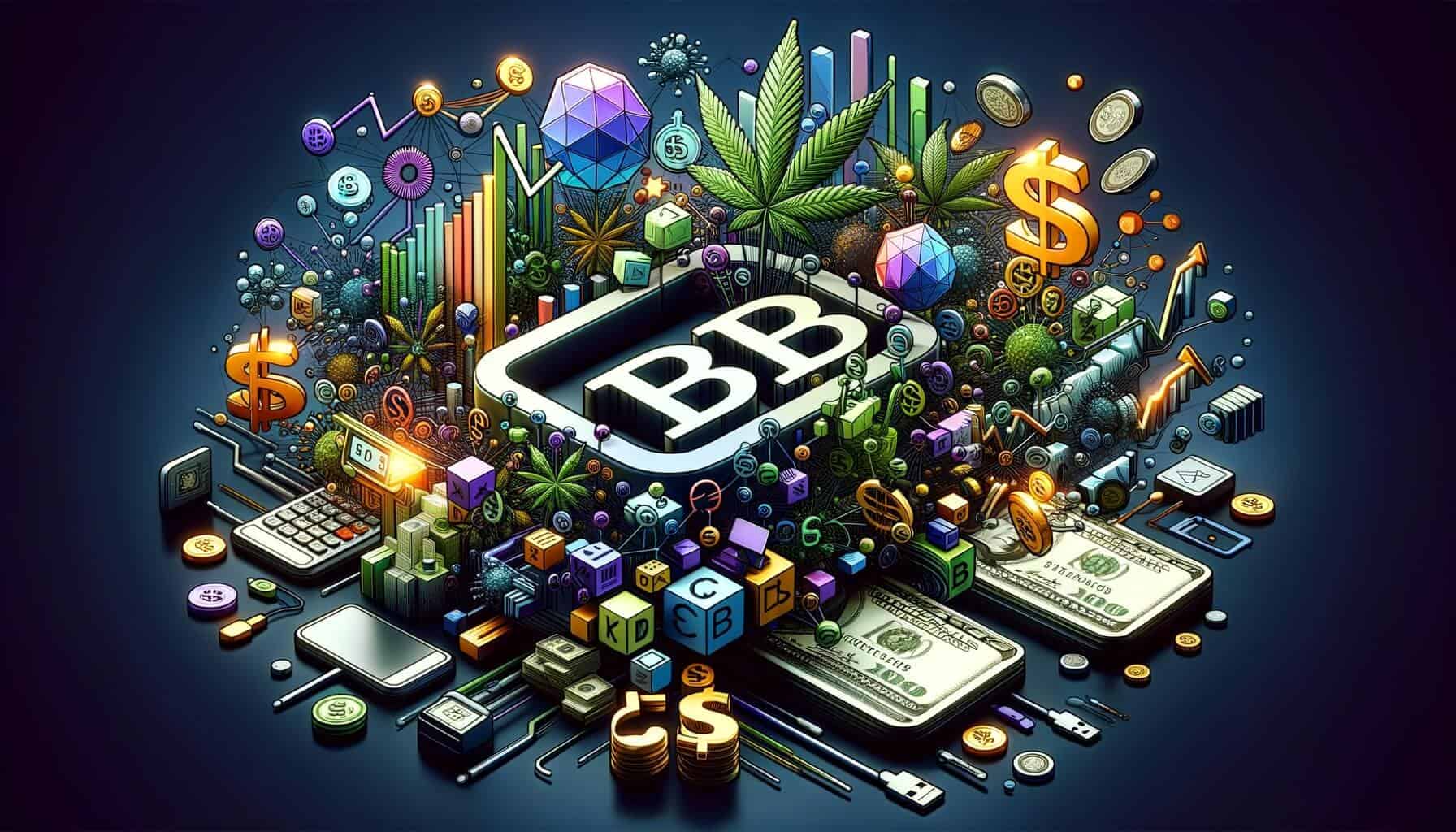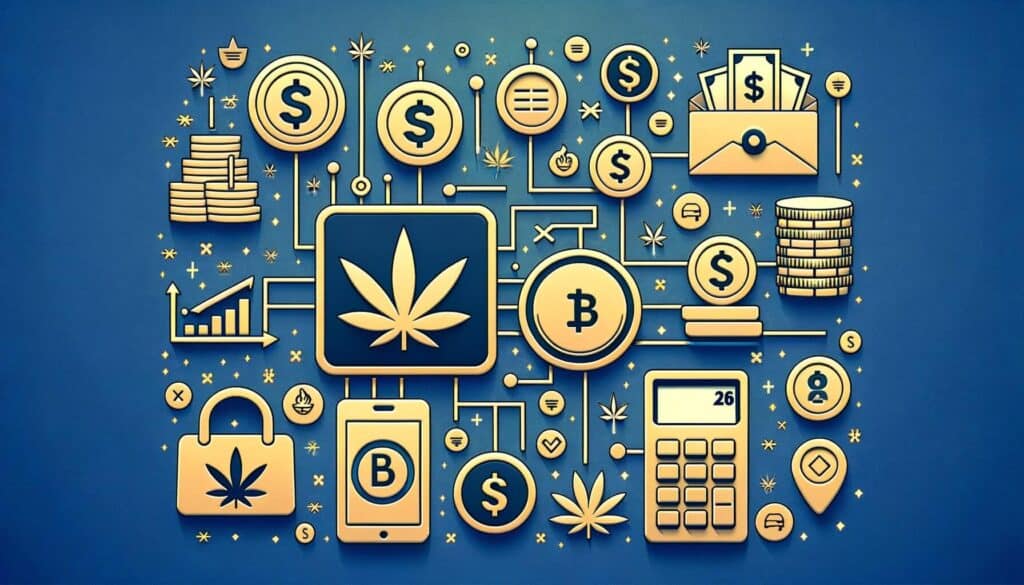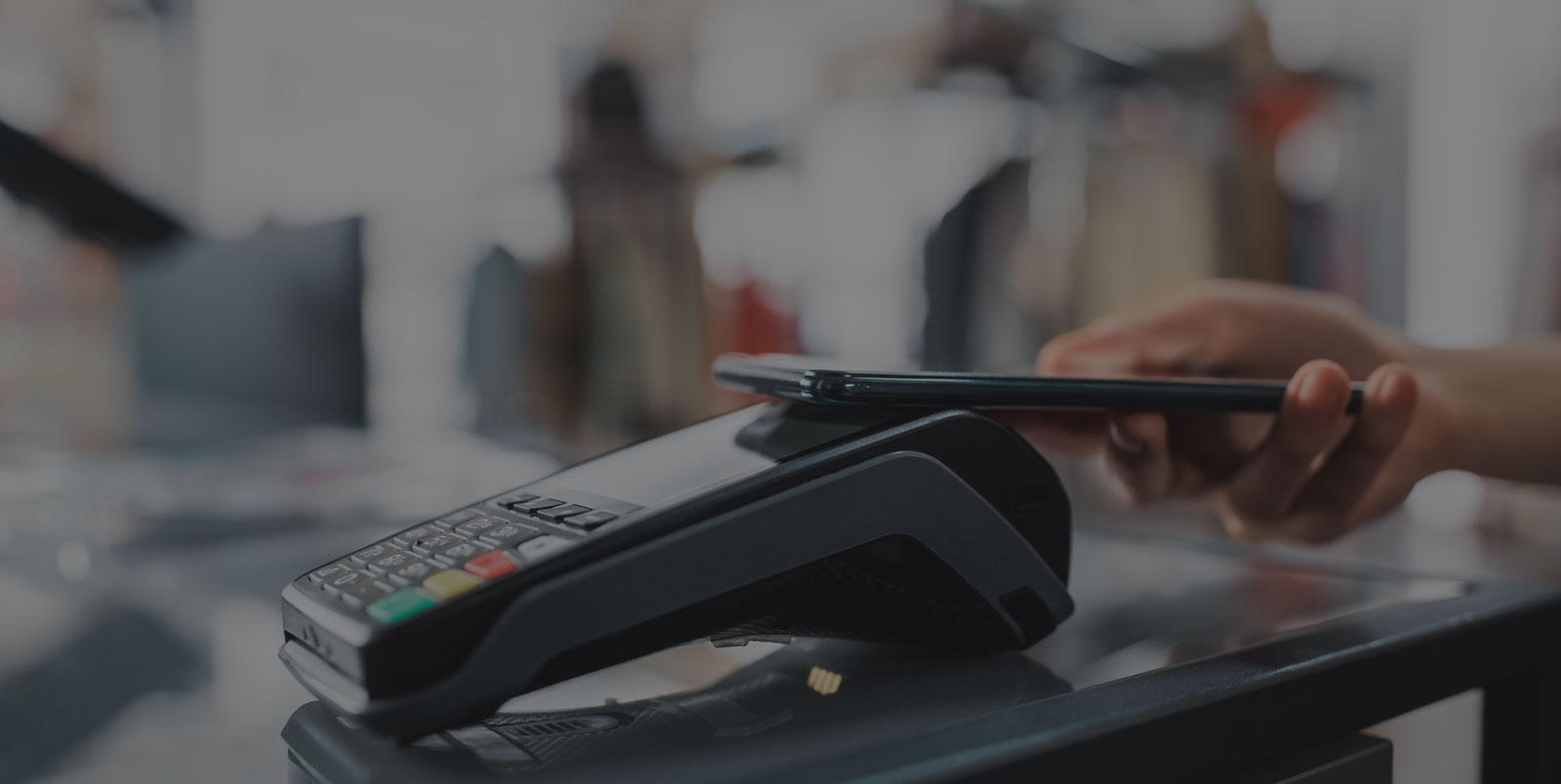
By Mia Leach February 12, 2025
CBD, or cannabidiol, has gained significant popularity in recent years for its potential health benefits. As a result, the CBD industry has experienced tremendous growth, with more and more businesses entering the market. However, despite its increasing acceptance, CBD businesses still face unique challenges, particularly when it comes to payment processing.
CBD payment processing fees and rates can vary significantly depending on various factors, including the type of business, the payment processor, and the specific services required. Understanding these fees and rates is crucial for CBD businesses to make informed decisions and ensure they are getting the best deal possible.
In this comprehensive guide, we will delve into the world of CBD payment processing fees and rates. We will explore the basics of CBD payment processing, the factors that affect fees and rates, the different types of fees, common rates and charges, tips for finding the best CBD payment processor, and strategies for negotiating lower fees.
Additionally, we will address frequently asked questions to provide a well-rounded understanding of CBD payment processing.
Understanding the Basics of CBD Payment Processing

CBD payment processing involves the handling of electronic payments for CBD products or services. This process allows businesses to accept credit and debit card payments from customers, providing a convenient and secure payment option. However, due to the unique nature of the CBD industry, payment processing for CBD businesses can be more challenging compared to other industries.
One of the primary reasons for this challenge is the legal ambiguity surrounding CBD. While CBD derived from hemp is legal at the federal level in the United States, CBD derived from marijuana is still considered illegal. This legal gray area has led to many banks and payment processors being hesitant to work with CBD businesses, fearing potential legal repercussions.
As a result, CBD businesses often face limited options when it comes to payment processors. Those that do offer CBD payment processing services typically charge higher fees and rates to compensate for the perceived risk associated with the industry. It is essential for CBD businesses to understand these fees and rates to make informed decisions and minimize costs.
Factors Affecting CBD Payment Processing Fees and Rates

Several factors can influence CBD payment processing fees and rates. Understanding these factors is crucial for CBD businesses to assess the cost-effectiveness of different payment processing options. Here are some key factors to consider:
1. Business Type: The type of CBD business can significantly impact payment processing fees and rates. For example, an online CBD retailer may have different fees compared to a brick-and-mortar store or a CBD manufacturer. Payment processors assess the risk associated with each business type and adjust their fees accordingly.
2. Processing Volume: The volume of transactions processed by a CBD business can also affect fees and rates. Higher transaction volumes often result in lower fees, as payment processors can spread their costs across a larger number of transactions. CBD businesses with high sales volumes may be able to negotiate better rates with payment processors.
3. Average Transaction Size: The average size of CBD transactions can also impact fees and rates. Payment processors typically charge a percentage of each transaction as a fee. Therefore, businesses with larger average transaction sizes may incur higher fees compared to those with smaller transaction sizes.
4. Chargeback Ratio: Chargebacks occur when a customer disputes a transaction and requests a refund. High chargeback ratios can be a red flag for payment processors, as they indicate potential issues with the business or its products. CBD businesses with low chargeback ratios are generally seen as less risky and may be eligible for lower fees and rates.
5. Payment Processor’s Risk Assessment: Each payment processor has its own risk assessment criteria. Some processors may be more willing to work with CBD businesses and offer competitive rates, while others may be more cautious and charge higher fees. It is crucial for CBD businesses to research and compare different payment processors to find the best fit for their needs.
Different Types of CBD Payment Processing Fees

CBD payment processing fees can be categorized into several types. Understanding these fees is essential for CBD businesses to accurately assess the cost of payment processing. Here are the most common types of CBD payment processing fees:
1. Setup Fees: Setup fees are one-time charges that cover the cost of setting up a CBD business’s payment processing account. These fees can vary significantly depending on the payment processor and the specific services required. CBD businesses should carefully review setup fees and consider negotiating or waiving them if possible.
2. Monthly Fees: Monthly fees, also known as account maintenance fees, are recurring charges that cover the ongoing maintenance and support of a CBD business’s payment processing account. These fees can include services such as customer support, account management, and software updates. CBD businesses should compare monthly fees across different payment processors to ensure they are getting a competitive rate.
3. Transaction Fees: Transaction fees are charges imposed on each individual transaction processed by a CBD business. These fees are typically a percentage of the transaction amount, although some processors may also charge a flat fee per transaction. CBD businesses should consider both the percentage and flat fee components of transaction fees when comparing payment processors.
4. Chargeback Fees: Chargeback fees are incurred when a customer disputes a transaction and requests a refund. These fees cover the administrative costs associated with handling chargebacks. CBD businesses should be aware of the chargeback fees charged by different payment processors and strive to keep their chargeback ratios low to minimize costs.
5. Reserve Fees: Reserve fees are charges imposed by payment processors to create a reserve fund that can be used to cover potential chargebacks or other financial liabilities. These fees are typically a percentage of each transaction and are held in a reserve account for a specified period. CBD businesses should carefully review reserve fees and consider negotiating or waiving them if possible.
Common CBD Payment Processing Rates and Charges

CBD payment processing rates and charges can vary significantly depending on the payment processor and the specific services required. However, there are some common rates and charges that CBD businesses should be aware of. Here are a few examples:
1. Setup Fees: Setup fees for CBD payment processing accounts can range from $0 to several hundred dollars. Some payment processors may waive setup fees as a promotional offer or as part of a negotiation. CBD businesses should compare setup fees across different processors and consider negotiating or waiving them if possible.
2. Monthly Fees: Monthly fees for CBD payment processing accounts can range from $10 to $100 or more. These fees typically cover account maintenance and support services. CBD businesses should compare monthly fees across different processors and consider the value provided by the services included in the fee.
3. Transaction Fees: Transaction fees for CBD payment processing accounts are typically a percentage of the transaction amount, ranging from 2% to 5% or more. Some processors may also charge a flat fee per transaction, typically ranging from $0.10 to $0.50. CBD businesses should consider both the percentage and flat fee components of transaction fees when comparing payment processors.
4. Chargeback Fees: Chargeback fees for CBD payment processing accounts can range from $10 to $50 or more per chargeback. These fees cover the administrative costs associated with handling chargebacks. CBD businesses should strive to keep their chargeback ratios low to minimize costs.
5. Reserve Fees: Reserve fees for CBD payment processing accounts are typically a percentage of each transaction, ranging from 5% to 10% or more. These fees are held in a reserve account for a specified period and can be used to cover potential chargebacks or other financial liabilities. CBD businesses should carefully review reserve fees and consider negotiating or waiving them if possible.
Tips for Finding the Best CBD Payment Processor
Finding the best CBD payment processor can be a daunting task, given the unique challenges faced by CBD businesses. However, with the right approach and careful consideration of key factors, CBD businesses can find a payment processor that meets their needs and offers competitive rates. Here are some tips for finding the best CBD payment processor:
1. Research and Compare: Conduct thorough research and compare different payment processors that offer CBD payment processing services. Look for processors with experience in the CBD industry and a track record of working with CBD businesses. Consider factors such as fees, rates, customer support, and integration options.
2. Consider Industry Experience: Look for payment processors that have experience working with CBD businesses. These processors are more likely to understand the unique challenges and requirements of the CBD industry, resulting in smoother payment processing and potentially lower fees.
3. Assess Fees and Rates: Carefully review the fees and rates charged by different payment processors. Consider both the upfront fees, such as setup fees, and the ongoing fees, such as monthly fees and transaction fees. Compare these fees across different processors to ensure you are getting a competitive rate.
4. Evaluate Integration Options: Consider the integration options offered by different payment processors. Integration refers to the process of connecting the payment processor’s services with your CBD business’s website or point-of-sale system. Look for processors that offer seamless integration options to provide a smooth and convenient payment experience for your customers.
5. Seek Transparent Pricing: Look for payment processors that provide transparent pricing. Avoid processors that hide fees or have complex fee structures. Transparent pricing allows you to accurately assess the cost of payment processing and avoid any surprises down the line.
6. Consider Customer Support: Customer support is crucial when it comes to payment processing. Look for payment processors that offer responsive and knowledgeable customer support. This ensures that any issues or questions can be addressed promptly, minimizing disruptions to your CBD business.
7. Read Reviews and Testimonials: Read reviews and testimonials from other CBD businesses that have worked with the payment processors you are considering. This can provide valuable insights into the quality of service, reliability, and overall satisfaction of other CBD businesses.
How to Negotiate Lower CBD Payment Processing Fees
Negotiating lower CBD payment processing fees can help CBD businesses save money and improve their bottom line. While not all payment processors may be open to negotiation, it is worth exploring this option to potentially secure better rates. Here are some strategies for negotiating lower CBD payment processing fees:
1. Understand Your Business’s Value: Before entering into negotiations, understand the value your CBD business brings to the payment processor. Highlight factors such as your business’s growth potential, customer base, and transaction volume. This can help position your business as an attractive client and potentially give you leverage in negotiations.
2. Research Competitors’ Rates: Research the rates offered by other payment processors that cater to the CBD industry. Use this information as a benchmark when negotiating with your current payment processor. If you can demonstrate that other processors offer better rates, your current processor may be more willing to negotiate.
3. Leverage Your Payment History: If you have a history of processing payments with your current payment processor, use this as leverage during negotiations. Highlight your positive payment history, low chargeback ratios, and overall reliability as a client. This can demonstrate your value as a low-risk client and potentially lead to lower fees.
4. Bundle Services: Consider bundling additional services with your payment processing account to negotiate lower fees. For example, if your CBD business also requires a point-of-sale system or e-commerce platform, inquire about package deals that include payment processing at a discounted rate.
5. Seek Multiple Quotes: Obtain quotes from multiple payment processors and use these quotes as leverage during negotiations. If you can demonstrate that other processors offer better rates, your current processor may be more willing to match or beat those rates to retain your business.
6. Review Contract Terms: Carefully review the terms of your payment processing contract. Look for any clauses or provisions that may allow for negotiation or fee adjustments. If you identify any areas for negotiation, discuss them with your payment processor and explore the possibility of reaching a mutually beneficial agreement.
7. Consider Long-Term Commitments: Some payment processors may offer lower fees for CBD businesses that commit to long-term contracts. While this option may not be suitable for all businesses, it is worth considering if you are confident in your long-term relationship with the payment processor.
Frequently Asked Questions
Q1. Can I use traditional payment processors for my CBD business?
While some traditional payment processors may work with CBD businesses, many are hesitant due to the legal ambiguity surrounding CBD. It is essential to research and find payment processors that specialize in CBD payment processing to ensure a smoother and more reliable experience.
Q2. Why do CBD payment processing fees and rates tend to be higher?
CBD payment processing fees and rates are often higher due to the perceived risk associated with the industry. The legal gray area surrounding CBD, potential chargeback issues, and regulatory uncertainties contribute to higher fees charged by payment processors.
Q3. How can I minimize chargebacks for my CBD business?
To minimize chargebacks, ensure that your CBD products are accurately labeled and comply with all applicable regulations. Provide clear product descriptions and usage instructions to avoid customer confusion. Offer excellent customer service and promptly address any customer concerns or issues to prevent chargebacks.
Q4. Can I negotiate lower CBD payment processing fees?
While not all payment processors may be open to negotiation, it is worth exploring this option to potentially secure better rates. Research competitors’ rates, leverage your payment history, bundle services, seek multiple quotes, review contract terms, and consider long-term commitments to negotiate lower fees.
Q5. What should I look for in a CBD payment processor?
When choosing a CBD payment processor, consider factors such as industry experience, fees and rates, integration options, customer support, and transparent pricing. Research and compare different payment processors to find the best fit for your CBD business’s needs.
Conclusion
CBD payment processing fees and rates can significantly impact the profitability of CBD businesses. Understanding the basics of CBD payment processing, the factors that affect fees and rates, the different types of fees, common rates and charges, tips for finding the best CBD payment processor, and strategies for negotiating lower fees is crucial for CBD businesses to make informed decisions and minimize costs.
By conducting thorough research, comparing different payment processors, and considering key factors such as fees, rates, integration options, and customer support, CBD businesses can find a payment processor that meets their needs and offers competitive rates.
Additionally, by leveraging their business’s value, researching competitors’ rates, bundling services, seeking multiple quotes, reviewing contract terms, and considering long-term commitments, CBD businesses can potentially negotiate lower fees and improve their bottom line.
Navigating the world of CBD payment processing can be challenging, but with the right knowledge and approach, CBD businesses can find a reliable and cost-effective solution that allows them to focus on what they do best – providing high-quality CBD products and services to their customers.
